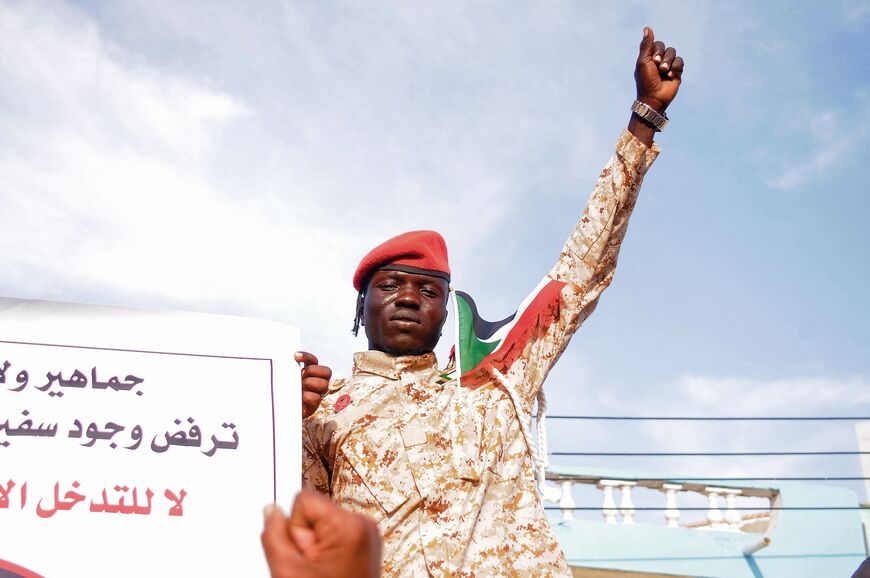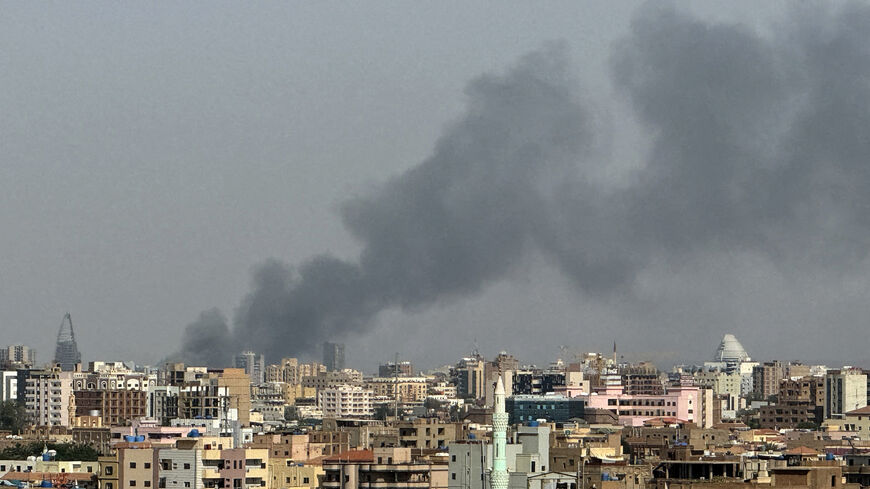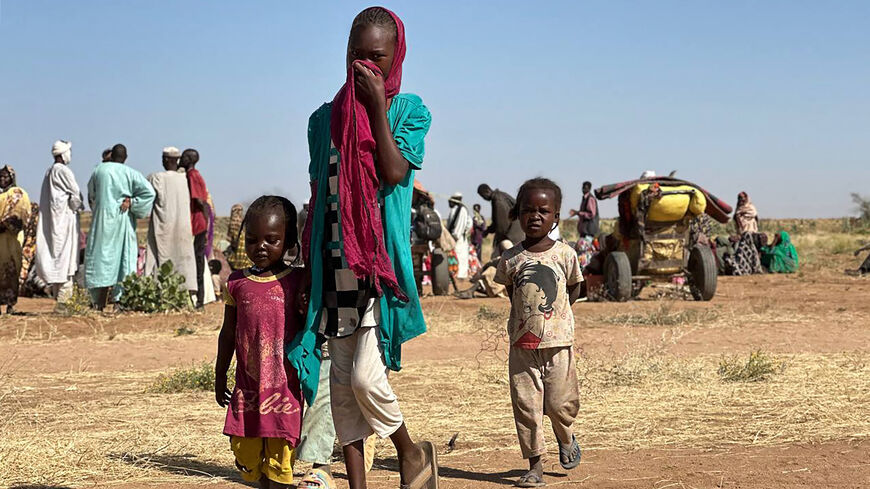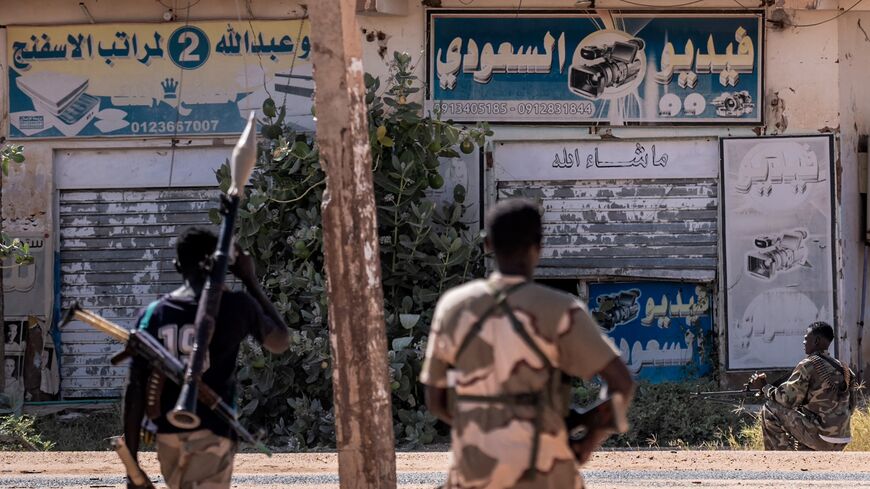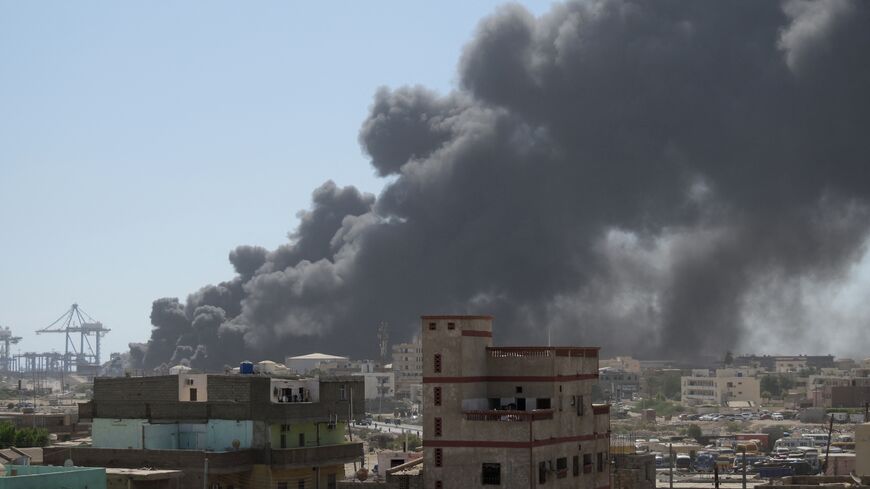UAE pledges $200M in aid to Sudan as it calls for Ramadan ceasefire
At a conference in Ethiopia, the UAE's minister of state for international cooperation called on the warring parties in Sudan to agree to a Ramadan "humanitarian pause" that will be followed by a political process.
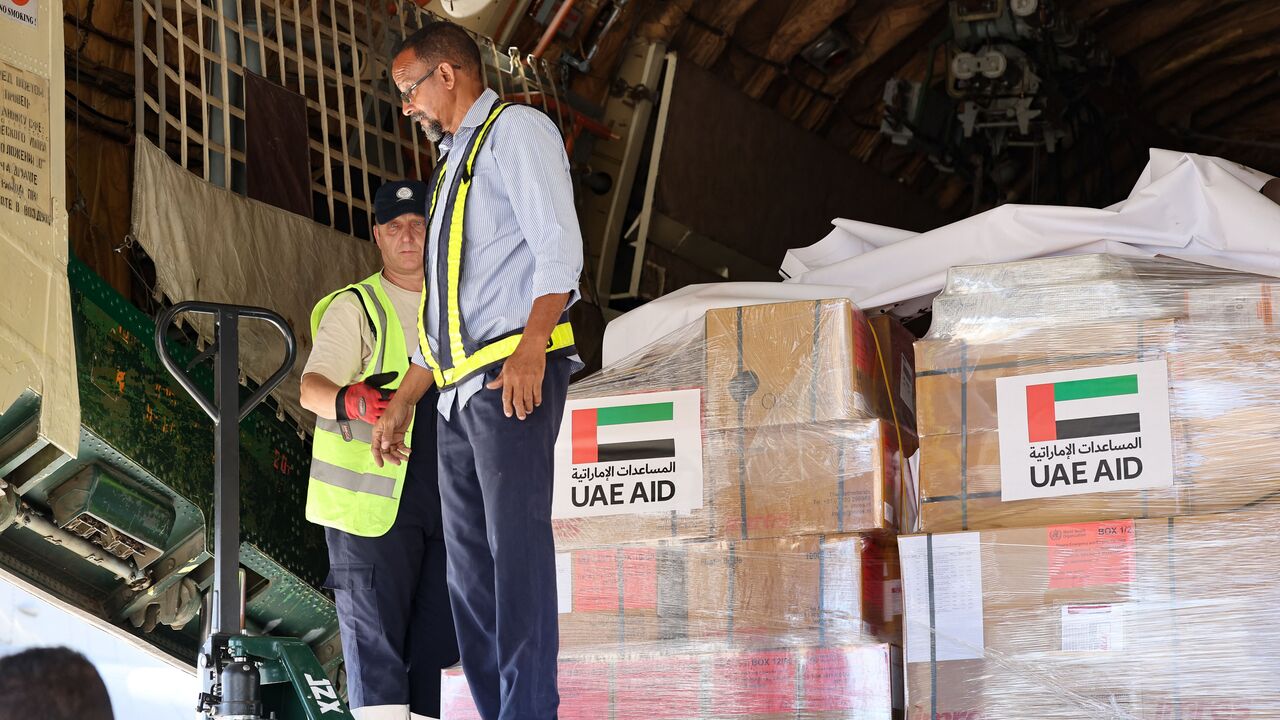
DUBAI — The UAE pledged $200 million in humanitarian aid to Sudan on Friday, as parties attending a conference in Addis Ababa pressed for a Ramadan ceasefire to halt the ongoing conflict in the country.
What happened: The conference in the Ethiopian capital brought together UAE, Ethiopia, the African Union, the Intergovernmental Authority on Development and international organizations at the United Nations Economic Commission for Africa headquarters in the East African country. It was attended by UN Secretary-General Antonio Guterres, Ethiopia's Prime Minister Abiy Ahmed, the presidents of South Sudan, Kenya, Uganda and Egypt and former Sudanese Prime Minister Abdallah Hamdok, who now lives in the UAE.
Reem Al-Hashimy, UAE minister of state for international cooperation at the UAE Foreign Ministry, told the conference, "Political will is now needed to avert drastic deterioration into widespread famine. The UAE will provide $200 million to ensure that help is provided quickly and we will encourage others to follow our example, including in the upcoming conferences on Sudan to come."
"This brings our total aid to Sudan since the beginning of the conflict to $600 million and a total of $3.5 billion over the past decade to help the people of Sudan," she said.
Nearly 11.5 million people are internally displaced, with a further 3.2 million seeking refuge in neighboring countries, according to the United Nations. The United States has put the possible death toll as high as 150,000.
Al-Hashimy added that the UAE was "convening a coalition to deliver urgent humanitarian assistance" and was persuading the feuding parties to agree to a "Ramadan humanitarian pause." Following the ceasefire, she said the UAE hoped to "start the political process and diplomatic dialogue to resolve this appalling crisis."
Background: The UAE increased its involvement in Sudan after conflict broke out between the Sudanese Armed Forces against the Rapid Support Forces in April 2023. The civil war pits the SAF against the RSF, a group with origins in the Janjaweed militias that fought for ousted ruler Omar al-Bashir in Darfur and led by Mohamed Hamdan Dagalo, known as Hemedti.
The UAE has come under increasing scrutiny for its role in Sudan in support of the RSF, a charge it denies. A group of United Nations experts monitoring an arms embargo said accusations that the UAE had sent weapons to the RSF are "credible," AFP reported in December.
On Jan. 7, the US Treasury Department under the outgoing Biden administration sanctioned Hemedti, noting that "for nearly two years, Hemedti’s RSF has engaged in a brutal armed conflict with the Sudanese Armed Forces for control of Sudan, killing tens of thousands, displacing 12 million Sudanese, and triggering widespread starvation."
The Treasury Department also sanctioned seven companies and one individual linked to the RSF.
Cameron Hudson, a senior fellow at Center for Strategic and International Studies, told Al-Monitor that a possible Ramadan ceasefire is unlikely to hold.
"The call for a Ramadan ceasefire by the UAE, when its proxy the RSF is in retreat, feels like a thinly veiled attempt to once again frame the SAF as the aggressor and uninterested in peace. The reality is more complicated," he said.
"The RSF will accept because they want to create the impression that they are for peace. But they have no intention or ability to maintain a ceasefire," he added.
The situation in war-torn Sudan is often described as the world’s worst humanitarian crisis, with 14.6 million people displaced and 30.4 million in need of aid, according to the International Rescue Committee.
The UAE's latest humanitarian commitment also comes amid a broad freeze of US foreign aid after the Trump administration signed an executive order on Jan. 24 to dismantle the US Agency for International Development.
Know more: A UAE official told Al-Monitor that the country wanted an immediate end to the conflict. Abu Dhabi tabled a ceasefire proposal on Tuesday.
"We reiterate our call on all parties to the conflict to immediately guarantee safe, unhindered access [to] essential humanitarian aid. We strongly believe that there should be no veto [on] humanitarian access. These are not merely requests; they are obligations under international humanitarian law," the official said.
The official also said the Sudanese army had disregarded the UAE's efforts toward "fostering peace" and that it had "falsified facts" about the country's role.
On Monday, Malik Agar, the deputy chairman of Sudan's Sovereign Council, dismissed the UAE-backed peace conference in Addis Ababa, calling it an "aggression" and saying that the country was making "detrimental steps" in hosting the conference on the sidelines of the African Union, in comments reported by Sudan Tribune.
The Sudanese army is advancing in Khartoum, as Rosalleen Caroll reported this month.

